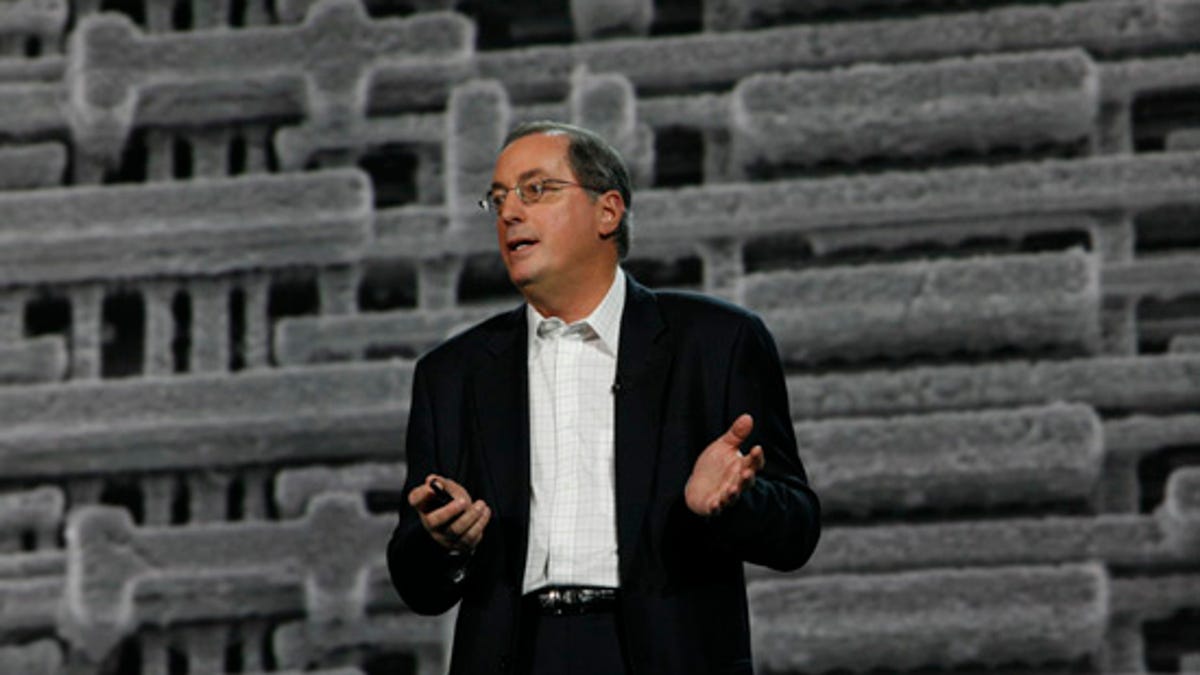Intel's CEO doubles his compensation in 2007
Despite the big boost, the chipmaker's compensation committee says that Paul Otellini's "total compensation was still significantly below the 65th percentile (among the peer group)."

Intel gave CEO Paul Otellini a substantial pay raise last year, doubling the value of his compensation, according to a filing with the Securities and Exchange Commission.
Otellini's total compensation package clocked in at $12.1 million last year, up from $5.9 million the previous year--an increase of 104 percent.
Intel investors, meanwhile, saw the chip giant's stock jump 33.6 percent during the year, as the Dow logged a 5 percent gain and the Nasdaq a 7.6 percent increase.
Otellini's pay hike was the result of trying to bring his compensation package in line with those at peer companies, Intel said in the SEC filing. The bulk of the 2007 increase came from giving his total cash compensation a 91 percent jolt to $4.7 million, while his base pay received a 10 percent increase to $770,000.
"Both elements were increased in light of peer data indicating that his cash compensation was significantly below the committee's compensation goals," Intel said.
And despite more than doubling Otellini's compensation in 2007, the Intel board's compensation committee, according to the filing, "believes that his total compensation was still significantly below the 65th percentile (among the peer group)."
And who are the peers in this group, besides the usual suspects of archrival Advanced Micro Devices, a range of computer makers, and software companies? Add to the mix Coca-Cola, Exxon Mobil, Chevron, Safeway, Bank of America, and a host of others.
"For 2007, the peer group consisted of technology companies generally considered comparable to Intel as well as non-technology companies within the Fortune 100. For the peer group used in 2007, the committee's intent was to choose companies that had one or more attributes similar to Intel's, including semiconductor or computer design, manufacturing and integration, and large enterprises with global operations," Intel stated in its filing.
While some investors may question the sizable bump to Otellini's wallet, one thing to note is that about a third of the overall increase came from a long-term stock option award of 700,000 shares that was front-loaded in 2007.
Otellini's long-term stock option award was granted in a single year instead of spread over a number of years. The decision was to "reinforce the at risk, performance-based nature of Otellini's total compensation package," Intel noted in its filing.
While staggered stock option awards are often used as golden handcuffs to retain executives, it seems in this case that Intel is more interested in boosting its share price than it is worried that Otellini might bolt. After all, doubling the pay package may have addressed the latter concern.